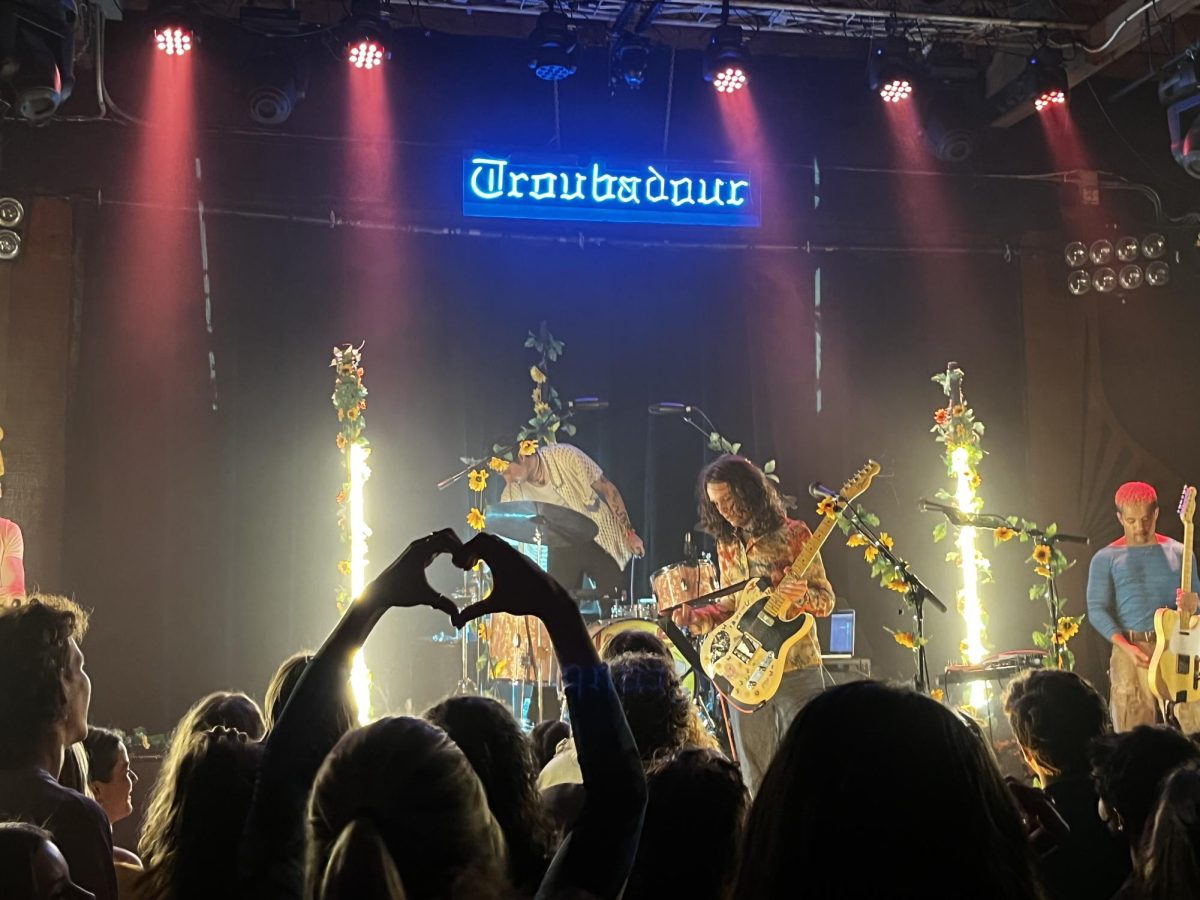There’s nothing like the feeling of your face jammed into a sweaty armpit while hundreds of bodies are pressed against you, robbing you of any sense of personal space.
If you’ve ever been to a concert, you know the feeling. Standing in one place for several hours surrounded by strangers in all directions and patiently waiting for a band or artist to come out and perform after waiting in line for what seemed like forever.
Then comes the moment you were waiting for.
The artist makes their way to the stage, the crowd erupts. Suddenly all the strangers surrounding you are singing along and cheering to the music that has transcended from your earphones and now stands before you.
Concerts around the world serve a dual purpose. In addition to providing entertainment, concerts have also proven to be a safe place for fans, providing temporary shelters of unity.
Concerts are unique because they bring together groups of people who might otherwise have nothing in common. When you attend a concert, you can rest assured that you have at least one thing in common with everyone in the room: the person on stage.
As a frequent concertgoer, I have relished the unique feeling of community that can only be felt at a concert. However, I’ve recently observed a shift in a crucial aspect of the concert scene — it appears that concert etiquette is quickly dying.
What is concert etiquette, you ask?
While there is no official definition or guidebook, concert etiquette is an unspoken agreement made by most in attendance at a show or production. Generally, it means respecting the people around you, the artist, the venue and the venue staff.
In recent years, there has been a growing rift between fans and concert culture, beginning with the relationship between fans and artists.
On Oct. 13, the experimental hip-hop group Death Grips cut their set short after audience members of their Arkansas show repeatedly threw objects at them.
This is not an isolated incident. In 2023 alone, artists such as Harry Styles, Drake, Billie Eilish and P!nk have all had similar experiences with fans throwing things on stage, and even striking the performers.
Supporting acts have also fallen victim to poor audience behavior. Supporting acts— or “openers” as they are also known— are lesser-known artists who perform before the main act. They are often local artists, with smaller followings who are in search of exposure.
Since they perform first, supporting acts are often forced to play while crowds are still settling into the venue. This usually consists of audience members walking around, finding their seats, and more notoriously, talking. Supporting acts are subject to talking, shouting and complete disregard of their performance. This has only worsened in recent years.
The decline of concert etiquette can most notably be attributed to the post-pandemic world, so much so that Wikipedia has dedicated a webpage to concert abuse in the 2020s.
As lockdowns were lifted and the music industry was revived, fans around the globe were eager to attend live concerts — many for the first time in their lives.
This decline in behavior might also be attributed to escalating parasocial relationships between fans and artists, especially those that intensified during pandemic lockdowns.
These one-sided relationships often trick fans into feeling they somehow know the artist on stage beyond a fan-creator dynamic. This phenomenon can lead fans to behave inappropriately toward artists, often in ways that cross boundaries.
There has also been growing discord amongst audience members themselves. After the resurgence of the live entertainment industry, crowds have become increasingly aggressive.
On Nov. 5, 2021, audience members of rapper Travis Scott’s annual music festival, Astroworld, initiated a crowd crush which led to the death of 10 attendees. The tragedy sparked a global conversation about concert safety.
Concerts are supposed to be fun, safe spaces where fans can feel community and be entertained. This can only happen if everyone present is considerate of the people around them. Let’s bring back proper concert etiquette.
It’s never too late to work on your concert etiquette. Here are a few ways you can be an outstanding concertgoer:
- Do be mindful of the people around you.
- Don’t shove into or past people.
- Do applaud and cheer at appropriate times.
- Don’t throw things at the act.
- Do know your limits if you’re consuming alcohol.
- Don’t do anything that might restrict someone’s view.
- Do wear deodorant. Please.
Maricarmen Becerra-Gonzalez can be reached at orionmanagingeditor@gmail.com






